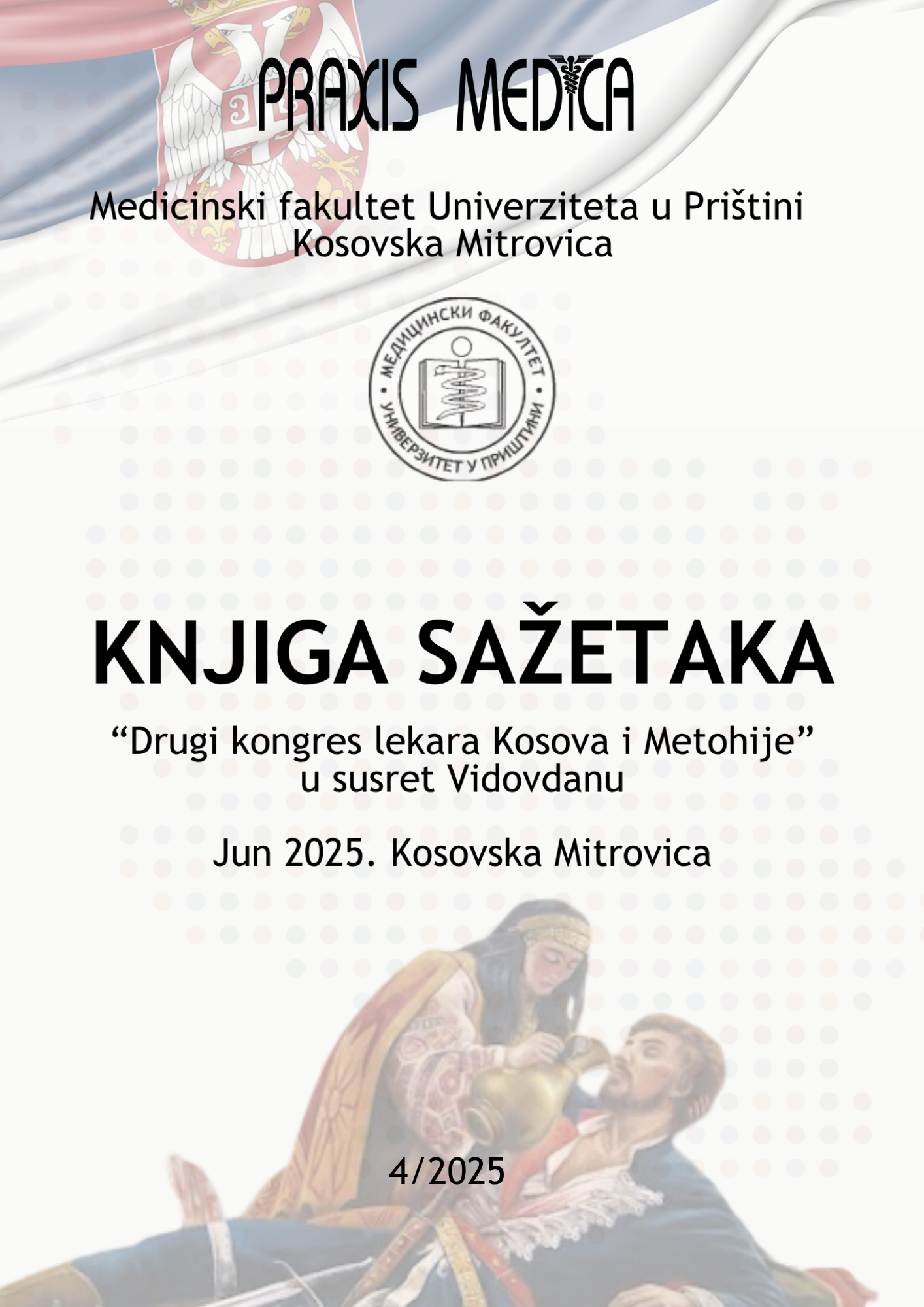
More articles from Volume 34, Issue 1, 2006
DRUG TRANSITION THROUGH THE BLOOD-BRAIN BARRIER AFTER THE RETROGRADE INTRAARTERIAL APPLICATIO
EFFECTOFGLUCAGON ON HEMODYNAMIC VARIABLES, CATECHOLAMINE LEVELAND ELECTROLYTE LEVELIN THE CANINE SERA
SPECIFIC OCULAR FINDINGS ATPATIENTS ON DIALYSIS
FEAR OF ADOLESCENTS ADOLESCENTS FROM STOMATOLOGICAL OLOGICAL INTERVENTIONS
SYMPTOMS, SIGNS AND ABNORMAL CLINICALAND LABORATORY FINDINGS IN WORKERS IN THE CHLORINE-ALKALI ELECTROLYZE
Citations

0
PLACE OF ZINK PREPARATION AS DIETETIC SUPPLEMENT IN NON-INSULIN-DEPENDENT DIABETES MELLITUS
Institute of Pharmacology and Toxicology, Medical Faculty Priština , Kosovska Mitrovica , Kosovo*
Institute of Pharmacology and Toxicology, Medical Faculty Priština , Kosovska Mitrovica , Kosovo*
Institute of Pharmacology and Toxicology, Medical Faculty Priština , Kosovska Mitrovica , Kosovo*
Institute of Pharmacology and Toxicology, Medical Faculty Priština , Kosovska Mitrovica , Kosovo*
Institute of Physiology, Medical Faculty Priština , Kosovska Mitrovica , Kosovo*
Institute of Physiology, Medical Faculty Priština , Kosovska Mitrovica , Kosovo*
Institute of Pharmacology and Toxicology, Medical Faculty Priština , Kosovska Mitrovica , Kosovo*
Published: 01.01.2006.
Volume 34, Issue 1 (2006)
pp. 91-94;
Abstract
Considering its importance in cell replication and differentiation, programmed cell death, DNA transcription, function of hormones, biological membranes and immunological system, zinc probably has a major role in enabling a proper
function of different tissues, organs and organic system in general. As an essential micronutrient wich is directly involved in metabolizm of insulin, zinc play important role in pathogenesis of diabetes mellitus and its complications. On the other hand, low zinc absorption and hyperzincuria in diabetic animals and humans have indicated that diabetics are more susceptibile to zinc deficiency compared to healthy persons. Inasmuch as zinc plays an important role in syntesis, storage and secretion of insulin as well as conformational integrity of insulin in the hexameric form, zinc deficiency may adversely affect the ability of the islet Numerous studies suggested that urinary zinc excretion was higher in diabetes mellitus, probably as result of hyperglycemia. In contribution, there are findings about correlation between urinary zinc excretion and blood glycosylated hemoglobin (HbA1c) levels in non-insulin dependent diabetic patients. Recent experimental investigations showed that zinc supplementation inhibited NF-kB activation in the pancreas and decreased the expression of inducibile nitric oxide synthase, a downstream target gene of NF-kB. The ability of zinc to modulate NF-kB activation in the diabetogenic pathway may be the key mechanism for zinc's protective effect and important criterion for choosing nutritional strategies for diabetes mellitus prevention.
Keywords
References
Citation
Copyright

This work is licensed under a Creative Commons Attribution-NonCommercial-ShareAlike 4.0 International License.
Article metrics
The statements, opinions and data contained in the journal are solely those of the individual authors and contributors and not of the publisher and the editor(s). We stay neutral with regard to jurisdictional claims in published maps and institutional affiliations.






